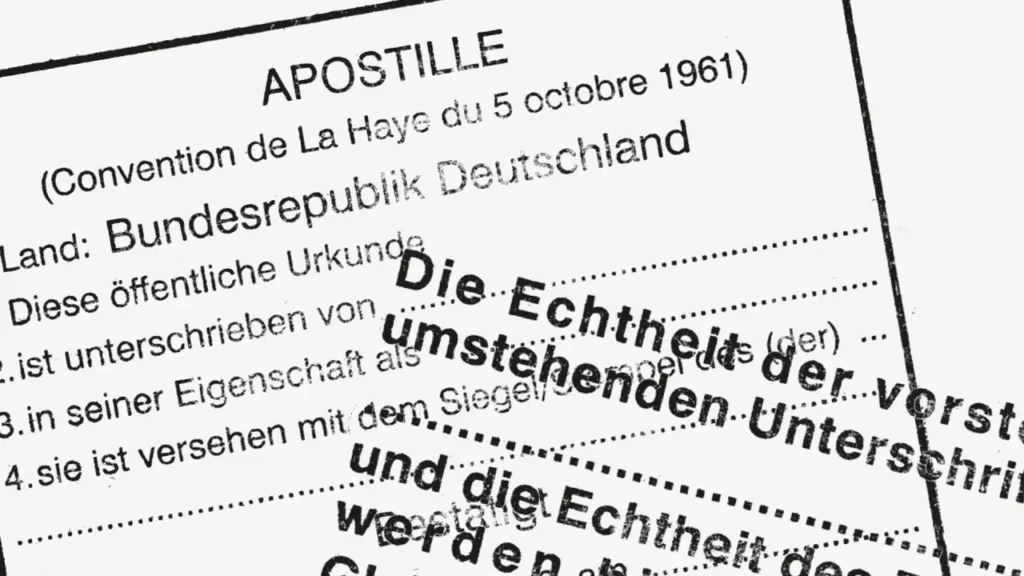
A life abroad – what do you need to consider when preparing?
Whether you’re interested in working and traveling, spending an extended period abroad, or emigrating permanently, if you want to leave Germany and settle abroad, you should start planning early. In addition to choosing the right destination and dealing with emotional goodbyes, there are practical aspects to consider. If you’re still looking for a job abroad, an internship, or practical tips on emigration, we recommend providers such as Auslandszeit. Here you will find numerous tips and resources for working and living abroad, whether as an au pair, as part of a semester abroad, work and travel, a language trip, or if you want to emigrate permanently. In addition, Auslandszeit also offers one of Germany’s leading job boards for jobs abroad in Europe and worldwide, through which more than 100,000 people have already found their way abroad since 2004.
As a translation company, however, we at ReSartus are primarily concerned with the question:
What documents do you need to emigrate?
For this reason, we provide you with an overview of the most important documents that may be required for a successful start abroad – and explain when a certified translation is necessary and who is allowed to provide it.
1. Passport and ID card
A valid passport is essential. Note that some countries require a certain period of validity of the passport. The identity card can be useful as additional identification. As a rule, both should still be valid for at least half a year. You can usually apply for a new passport or identity card at your local citizens’ office. In some cities, this can now also be done digitally, but an on-site appointment is often necessary. Particularly in larger metropolitan areas, you should apply for this ahead of time, as the processes often take a long time here due to overload in the citizens’ offices, and appointments are hard to get.
2. Birth certificates
These documents are often the basis for all further steps. A certified translation may be required to prove your family and marital status abroad. This does not only apply to yourself, but to your children as well, should you have any. Civil status documents such as birth certificates are usually issued by the registry office in whose jurisdiction you were born. If you wish to use these abroad, a so-called “apostille” or “legalization” is often required, depending on the destination country. For civil status documents, you can usually obtain this from the relevant Regierungspräsidium or Bezirksregierung, depending on the state.
3. Adoption and custody documents
If you have adopted or custodial children, it may be necessary to have these documents translated into the language of your new adopted country as well. You can usually obtain these documents from the responsible youth welfare office.
4. Certificate of eligibility for marriage, marriage certificate and divorce decree
For married people and those who want to be (again), these documents are of great importance. It is also important for divorced persons to provide proof of divorce in the form of the relevant divorce decree. While the registry office is responsible for issuing certificates of no impediment to marriage or marriage certificates, divorce decrees are issued by the district court that originally granted the divorce. An apostille or legalization is issued by the higher regional court.
5. Degrees and professional qualifications
Depending on your profession and target country, these documents may be necessary for the recognition of your qualifications or degrees. Diplomas, in particular, must usually be presented along with a transcript of records in order to be valid. In this case, you usually have to apply for certified copies at the relevant school or university where you or your children have obtained the degree – a certified copy from the town hall is often not sufficient. A notarization or apostille is issued by the relevant Ministry of Science or Education – this depends on the federal state.
6. Employment contracts and references
Some countries even require signed employment contracts for successful immigration, for which references from your current employer can be extremely helpful. You should therefore ask your employer for appropriate certificates or references well in advance before emigrating from Germany.
7. Driver's license
If you want to drive abroad, inquire about the requirements for recognition of your driver’s license. Often you are only allowed to drive abroad with your German driver’s license for a transitional period and must have it rewritten after a transitional period or apply for an international driver’s license beforehand. Generally, citizens’ offices are also responsible for this.
8. Health and vaccination certificates
Some countries require proof of health and vaccinations. So remember to have medical certificates and proof of vaccinations. This doesn’t just apply to your family, you often need to be able to show appropriate documentation of vaccinations for your pets as well. Your family doctor will provide you with proof of measles vaccination, for example.
9. Financial documents
Bank statements, tax returns, proof of income, and other financial documents may be important for entry or residency purposes. Particularly if you want to establish a company abroad, these documents are relevant. To obtain these documents, contact your bank, tax advisor or employer.
10. Police clearance certificate
Particularly in the area of children’s and youth work, it can be important to provide a background check. If you want to work abroad as a teacher or in childcare, for example, such a background check is essential. You can also apply for a police clearance certificate digitally either from the relevant registration office or from the Federal Office of Justice. However, you must indicate that you wish to use it abroad, as it will then be signed and stamped. Only then can it be authenticated by the Federal Office for Foreign Affairs (Bundesamt für Auswärtige Angelegenheiten).
11. For medical professionals: Certificate of Good Standing
A certificate of good standing is a document that certifies you are authorized to practice medicine without restriction. It also confirms that no legal action has been taken or proceedings initiated against you. The relevant district governments or regional authorities are responsible for this. In the Arab world, this is often performed by the provider Dataflow, but not all government authorities in Germany cooperate with third-party providers. In this case, you will have to go through the lengthy legalization process.
12. Visa and residence permit
Depending on the country and length of your stay, you may need a visa or a residence permit, especially outside the EU. Find out about the requirements in advance. Unfortunately, this often takes several months, so be sure to start well in advance and submit your application to the appropriate diplomatic mission in your target country.
13. Health insurance
Check your insurance situation in your target country. You may need a translation of your insurance documents to ensure the transition to a new insurance plan. To do this, contact your statutory or private health insurance company accordingly.
14. Living will, health care proxy and testament
It is advisable to arrange legal matters in advance. If you become legally incapacitated abroad, for example due to an accident, this can have serious consequences. It is better to act with foresight than to face the consequences later. These should also be translated into the language of your new home country so that these documents can be used directly in an emergency, for example, in a hospital. You should have these documents drawn up by a notary in consultation with the authorized persons, i.e. usually a partner or your own children.
As you can see, a smooth start to a new life abroad requires thorough organization. Professional translation services, such as the ones we offer, can help ensure that you receive the necessary documents correctly and in a timely manner. Rely on our expertise to make your departure as smooth as possible. Contact us today for a consultation!

Why localization is more than translation

60th Theodor Heuss Prize


The invisible danger: digital translation fraud

Planned revision of the JVEG

Freelancer visa in the UAE

Emigration to Dubai

Cuts and restrictions – Interpreters and Translators in Crisis

Building bridges at the Wilhelm Bock Prize

Funding Programs for Language Mediators in Healthcare

Inclusion in Education: ReSartus Enables International Exchange

The Future of Remote Interpreting – Virtual Conferences


Industry-specific challenges in the translation industry

The Role of AI in the Translation Industry

Hiiios – The video interpreting service by ReSartus

Emigrating from Germany

ReSartus supports the 43rd Erlangen Poetry Festival

